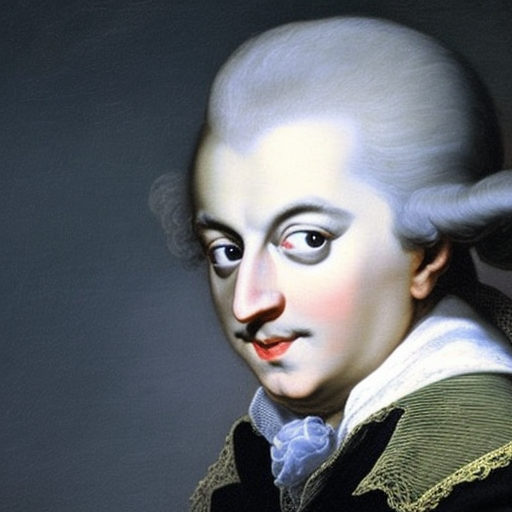Summary of “Amadeus” by Miloš Forman
One-line summary: “Amadeus” is a captivating film that delves into the life of composer Wolfgang Amadeus Mozart through the eyes of his rival, Antonio Salieri.
Main Cast and Crew:
- Director: Miloš Forman
- Writer(s): Peter Shaffer (play and screenplay)
- Key Actors:
- F. Murray Abraham as Antonio Salieri
- Tom Hulce as Wolfgang Amadeus Mozart
- Elizabeth Berridge as Constanze Mozart
- Music Director: Neville Marriner
- Director of Photography: Miroslav Ondříček
- Producers: Saul Zaentz
Plot:
“Amadeus” is set in 18th century Vienna and follows the life of Antonio Salieri, a respected court composer. Salieri becomes consumed by jealousy when he realizes the extraordinary talent possessed by the young and eccentric Wolfgang Amadeus Mozart. As Salieri witnesses Mozart’s genius, he becomes increasingly resentful and plots to undermine him.
Salieri’s envy is fueled by the belief that God has chosen Mozart as his instrument, while Salieri, despite his devotion, is left with mediocrity. Salieri’s bitterness leads him to manipulate circumstances, sabotaging Mozart’s career and personal life. However, his attempts to destroy Mozart only serve to reveal his own inner torment and moral decay.
The film explores the complex relationship between Salieri and Mozart, as Salieri oscillates between admiration and hatred for his rival. Salieri’s admiration for Mozart’s music is juxtaposed with his disdain for the man himself, whom he perceives as vulgar and immature. The film also delves into Mozart’s personal struggles, including his strained relationship with his wife, Constanze, and his financial difficulties.
Themes and Motifs:
“Amadeus” delves into themes of jealousy, obsession, and the pursuit of artistic excellence. It explores the destructive power of envy and the toll it takes on the human psyche. The film also examines the dichotomy between talent and mediocrity, as well as the role of divine inspiration in the creative process.
Motifs of music and performance are prevalent throughout the film, highlighting the transformative power of Mozart’s compositions. The contrast between Mozart’s exuberant personality and Salieri’s restrained demeanor further emphasizes the clash between genius and mediocrity.
Reception and Legacy:
Upon its release in 1984, “Amadeus” received widespread critical acclaim. The film won eight Academy Awards, including Best Picture, Best Director for Miloš Forman, and Best Actor for F. Murray Abraham. It also received numerous other accolades, solidifying its place as a cinematic masterpiece.
“Amadeus” continues to be celebrated for its exceptional performances, stunning visuals, and its exploration of the human condition. The film’s enduring legacy lies in its ability to captivate audiences with its portrayal of genius, jealousy, and the timeless power of music.
Recommendation:
“Amadeus” is a must-watch for anyone who appreciates art, music, and the complexities of the human psyche. The film’s compelling narrative, brilliant performances, and exquisite production make it a true cinematic gem. Whether you are a fan of classical music or simply enjoy a well-crafted story, “Amadeus” is a film that will leave a lasting impression.
Memorable Quote:
“Mediocrities everywhere… I absolve you… I absolve you… I absolve you… I absolve you… I absolve you all.”












